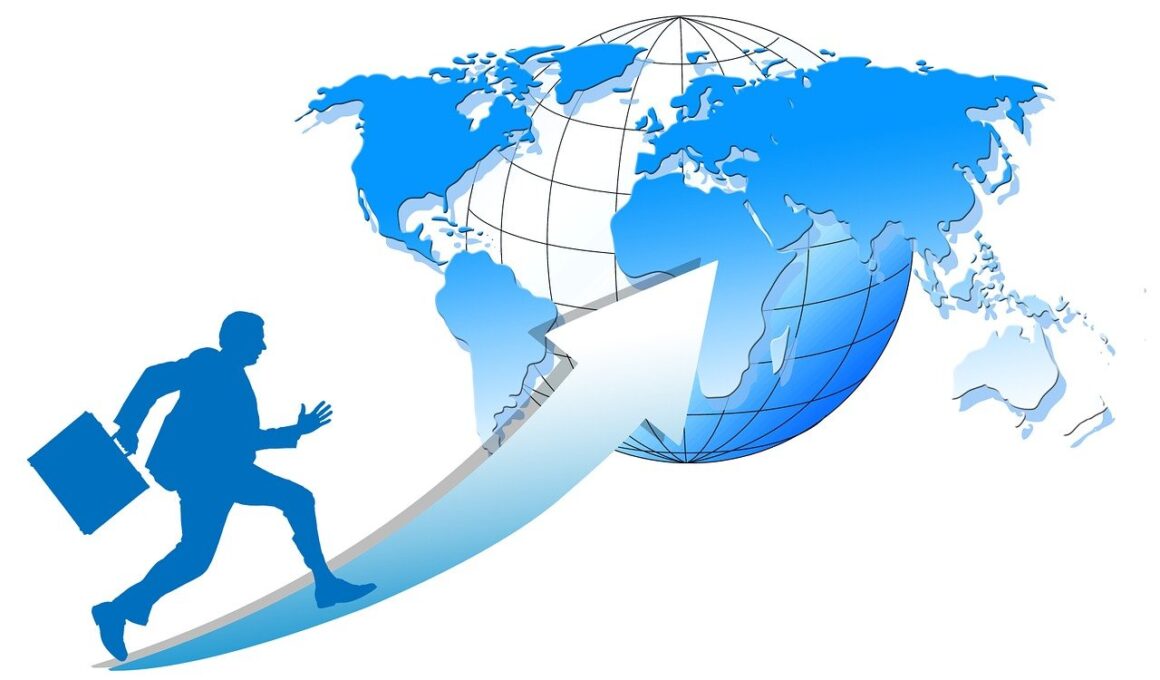The Role of Emerging Economies in International Trade Expansion
The global landscape of international trade has witnessed a significant transformation with the rise of emerging economies. These countries have increasingly become pivotal players, influencing global economic policies and trade dynamics. Emerging markets such as Brazil, India, China, and South Africa offer diverse opportunities and challenges, contributing substantially to the global supply chain. Their participation has not only boosted their own economic performance but has also led to greater interdependence among nations. Investments from emerging markets have been flowing into developed economies, creating a robust exchange that benefits both sides. Furthermore, as these economies industrialize, the demand for goods and services expands rapidly, providing new markets for exporters. Besides, emerging markets often prioritize trade agreements that enhance their competitiveness, leading to increased exports and imports. This has resulted in a dynamic market environment where established economies must adapt to the evolving trends set by these emerging nations. The role of technology in this landscape cannot be underestimated, enabling efficient trade processes and fostering innovation within these economies.
To better understand the impact of emerging economies on international trade, one must consider the various factors driving their growth. Rapid industrialization, increasing consumer markets, and urbanization are key components of their economic ascent. For example, the burgeoning middle class in these nations fuels domestic demand, leading to a higher volume of imports. As a result, traditional trade patterns are evolving, with emerging economies becoming more significant players on the global stage. The participation of these countries in global value chains reflects their ability to adapt and innovate. Governments in emerging markets are also actively participating by establishing favorable trade policies and initiating investment incentives to attract foreign capital. This creates an environment conducive to trade-led growth. It is essential to note that while opportunities abound, challenges such as political instability, regulatory discrepancies, and infrastructural deficiencies remain. Navigating these challenges will be critical for both emerging economies and their trading partners. Enhancing collaboration and strengthening international relationships will be key strategies for mutual growth and sustainability in international trade moving forward.
Another vital aspect of the role of emerging markets is their influence on supply chains globally. As globalization continues to evolve, the significance of having diverse supply sources has increased. Emerging economies often serve as manufacturing hubs due to their competitive labor costs, thus attracting multinational corporations. China has been a standout example, dominating sectors such as electronics and textiles, while countries like Vietnam and India are catching up. However, the COVID-19 pandemic has highlighted vulnerabilities in global supply chains, revealing how dependency on a single market can disrupt trade flows. This has prompted businesses to diversify their supply chains by engaging with multiple emerging markets, enhancing resilience against potential future disruptions. The expansion of these markets not only provides cheaper goods but also encourages local production capabilities, leading to sustainable employment growth. Countries such as Mexico have capitalized on this shift by enhancing trade agreements with the United States and other partners, illustrating the interconnectedness of modern trade. Therefore, understanding the role of these emerging markets in shaping supply chains is critical to grasping the future of international trade relationships.
The significance of trade agreements involving emerging economies is increasingly coming to the forefront. As these countries seek to bolster their economic stature, they aim to negotiate better trade deals that reflect their growing importance in global trade. Such agreements often prioritize tariffs, regulatory alignments, and investment protections, enabling emerging economies to thrive. For instance, Mexico and Canada have engaged in renegotiations that enhance their trade relationships beyond mere tariffs. Similarly, the African Continental Free Trade Area (AfCFTA) aims to boost trade amongst African countries, providing numerous opportunities for emerging economies on the continent. However, while entering international agreements, it is crucial for these countries to address domestic challenges, ensuring that the benefits of such agreements are equitably distributed. Additionally, trade agreements must account for environmental and labor standards, contributing to sustainable development. Implementing policies that address these concerns can help emerging economies build a favorable reputation, attracting further foreign investments. The future of international trade will heavily depend on the strength and impact of these agreements, facilitating a more inclusive global economy as nations work collaboratively toward common goals.
In the ongoing evolution of international trade, technological advancements play a pivotal role in shaping strategies for emerging economies. Technology has transformed how businesses operate—ranging from the utilization of e-commerce platforms to incorporating artificial intelligence in logistics. Emerging markets are capitalizing on technology to enhance efficiency, reduce costs, and improve access to global markets. The adoption of digital payments and online marketplaces has effectively opened up new avenues for small and medium-sized enterprises (SMEs) to engage in international trade. As these nations continue to embrace technology, they pave the way for innovation that contributes significantly to their economic stability. However, disparities in technology access must be addressed to ensure that all players benefit from these advancements. This calls for investments in digital infrastructure and education, preparing the workforce to compete in a technology-driven global economy. Furthermore, international cooperative initiatives that promote knowledge sharing and capacity building can facilitate greater technology adoption. Ultimately, technology serves as a catalyst for growth in emerging markets, enabling them to compete on equal footing with established economies.
The geopolitical landscape significantly influences how emerging economies engage in international trade. As global power dynamics shift, emerging markets are becoming more assertive in asserting their trade interests. This shift is accompanied by diversification strategies as countries seek to reduce reliance on traditional trade partners. Emerging economies like Brazil and India are actively engaging with different regions, including Africa and Southeast Asia, building new alliances. Furthermore, shifting alliances can lead to competitive advantages, as these nations can negotiate terms that suit their unique conditions. However, geopolitical tensions can also create uncertainties, affecting trade flows and international cooperation. Events such as tariffs, sanctions, or diplomatic disputes can impact emerging economies disproportionately, given their often fragile economic foundations. Addressing these challenges requires resilient policies and adaptive trade strategies that anticipate potential shifts in the geopolitical landscape. By fostering strong trade relationships, pursuing diversified partnerships, and strengthening local industries, emerging economies can mitigate adverse impacts. Such strategies can bolster their position, making them influential players capable of participating in shaping a collaborative global trade environment moving forward.
Looking toward the future, the role of emerging economies in international trade expansion appears promising yet complex. Analysts predict that the demand for goods from these markets will continue to rise, driven by globalization and technological advancements. Emphasizing sustainable development will be key in creating trade policies that balance economic growth with social responsibility. Emerging markets must ensure that their growth translates into tangible benefits for their populations. Policymakers should focus on creating transparent frameworks that promote fair trade practices and environmental sustainability. Furthermore, fostering innovation and entrepreneurship within these nations will be crucial for sustaining growth in a rapidly changing global environment. Collaboration between emerging markets and established economies can lead to enhanced opportunities for knowledge sharing, resource pooling, and capacity building. The pathway ahead requires concerted efforts to strengthen international partnerships, prioritize sustainable development, and embrace technological changes. By effectively addressing current economic challenges while leveraging their unique strengths, emerging economies can indeed play a transformational role in shaping the future of international trade on both regional and global scales.
The culmination of these experiences highlights a critical aspect to strengthen Mexico’s emerging markets within international trade frameworks. Trade policies and practices must take into account multiple stakeholders to ensure that the benefits of international trade are shared equitably across various segments of society. As emerging economies strive for global competitiveness, it is essential to engage in practices that align with the long-term goals of sustainability, social responsibility, and community development. By fostering regional cooperation and enhancing trade relationships, emerging markets can utilize their unique position to develop impactful trade strategies that contribute to economic stability and growth. Importantly, governments must advocate for these issues to ensure comprehensive trade agreements promote not only economic benefits but also culture and heritage preservation. In this way, the role of emerging economies in international trade can be seen as multifaceted, bridging the gap between modern economic growth and traditional values. Stakeholders from various sectors should come together to build a more inclusive trade system that can harness the full potential of emerging markets while preserving their rich heritage and cultural uniqueness in the global landscape.


